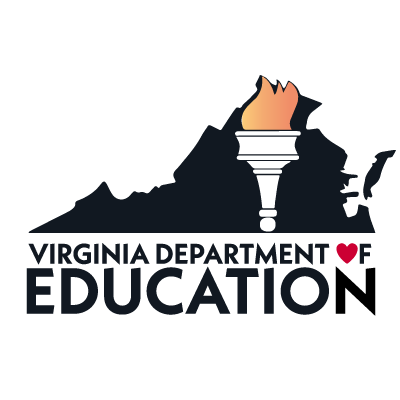The following books are available to check out from the T/TAC William & Mary Library.
The Formative 5: Everyday Assessment Techniques for Every Math Classroom
Authors: Francis Fennell, Beth McCord Kobett, & Jonathan A. Wray
Call Number: CMT147
Imagine how it would feel to not worry about how to plan, teach, and check for student mathematical understandings and related proficiencies. This must-have resource shows the way and offers five of the most impactful, proven assessment techniques – Observations, Interviews, “Show Me,” Hinge Questions, and Exit Tasks – you can implement, every day. This book gives you a concise, research-based, classroom-dedicated plan with lots of tools, activities, classroom vignettes, and student work to guide your daily use of these techniques. This K-8 resource will help you build your mathematics-related formative assessment capacity through daily use of these five key techniques, leading to regularly monitored and improved learning opportunities for your students.
Teaching How the Written Word Works: Using Morphological Problem-Solving to Develop Students’ Language Skills & Engagement with the Written Word
Author: Peter Bowers
Call Number: CWL60
This useful resource offers an introduction to the core concepts of how the ordered way English spelling works. It uses a series of lessons designed to help teachers, tutors and parents make sense of English spelling along with their young co-learners. The lessons focus on morphological analysis with the matrix and word sum. In addition to explicit lessons taking teachers through “teacher-led inquiries” of words, this books models ways teachers can integrate word structure instruction into reading and writing in any content area by using morphological problem-solving as a tool for shared and guided reading.
Improving Phonological Awareness Skills In Struggling Readers of all Ages
Author: Sandra Donah
Call Number: CRD294
This manual is a wonderful comprehensive resource for developing phonemic awareness. Teachers will find the sequential nature of the activities extremely useful when working to develop phonemic awareness skills in their students.
Teaching Math to People with Down Syndrome, and Other Hands-on Learners: Strategies and Materials
Author: DeAnna Horstemeier
Call Number: CMT152
This new 2nd edition covers the full spectrum of basic math instruction and focuses on teaching practical, real-world math that is necessary for daily living, employment, and community interactions. Geared toward the visual learning style of children and adults with Down syndrome, it includes lesson plans and activities on prenumber concepts; counting; number recognition & writing; time & management; addition, subtraction, multiplication, & division; fractions; money; and, calculator use. With dozens of reproducible worksheets, games, and teaching aids, this easy-to-use guide gives parents and teachers the strategies and tools they need to evaluate a student’s math-readiness level, provide ample practice opportunities, and incorporate math goals into IEPs.
Integrative Strategies for the K-12 Social Studies Classroom
Editor: Timothy Lintner
Call Number: CHS16
The crux of this book is to provide educators insights and strategies into how to integrate social studies with other discipline areas. Calling upon national experts in their respective fields, each chapter chronicles the broad relationship between individual content areas and social studies. Multiple examples of integrative opportunities are included. At the end of each chapter is a series of grade-specific integrative lesson plans ready for implementation. This book was purposefully designed as a how-to, hands-on, ready-reference guide for educators at all stages and all levels of teaching.
Teaching Mathematics Meaningfully: Solutions for Reaching Struggling Learners
Authors: David Allsopp, LouAnn H. Lovin, & Sarah van Ingen
Call Number: CMT150
Unlock math concepts for struggling learners with the expanded new edition of this bestselling text, ideal for both preservice and in-service educators. Filled with invaluable tips, tools, and research-based strategies for Grades K-12, this comprehensive resource fully prepares teachers to demystify math for a wide range of learners, including students with learning disabilities, ADHD, and mild cognitive disabilities. Thoroughly updated and aligned with current state standards, this second edition includes the latest research, an enhanced instructional framework, expanded coverage of hot topics like RTI and assessment, and more. And with the practical materials — from activities to printable planning forms — teachers will have concrete ways to help students make sense of math, improve their proficiency, and generalize their knowledge in multiple contexts.
Reading, Writing, and Talk: Inclusive Teaching Strategies for Diverse Learners, K-2
Authors: Mariana Souto-Manning & Jessica Martell
Call Number: CLA62
Readers are invited into K-2 classrooms where racially, culturally, and linguistically diverse children’s experiences, unique strengths, and expertise are supported and valued. Chapters focus on oral language, reading, and writing development and include diverse possibilities for culturally relevant and inclusive teaching. Featured teaching strategies foster academic success, cultural competence, and critical consciousness―leading students to read their worlds and question educational and societal inequities. Early childhood teachers will find this book invaluable as they consider effective ways to teach diverse children. The hands-on examples and strategies portrayed will help educators expand their thinking and repertoires regarding what is possible―and needed―in the language and literacy education curriculum. Unique in its focus on equitable, fully inclusive, and culturally relevant language and literacy teaching, this important book will help K–2 teachers (re)think and (re)conceptualize their own practices.
Practical Strategies for Teaching K-12 Social Studies in Inclusive Classrooms
Editors: Timothy Lintner & Windy Schweder
Call Number: CHS15
There are numerous texts on the teaching of social studies, an equal number on teaching students with disabilities. Blending best practice in both social studies and special education instruction, this book provides both pre- and in-service educators simple, practical strategies that support the creation of engaging, relevant, and appropriate social studies opportunities for all students. Though the strategies presented are useful for all students, they are particularly beneficial for students with disabilities. From Universal Design for Learning (UDL), mnemonics, graphic organizers, and big ideas, to co-teaching, screen readers and the Virtual History Museum, this book offers hands-on, practical ideas general educators can use when teaching K-12 social studies in inclusive classrooms.
Teaching Reading Comprehension to Students with Learning Difficulties
Authors: Janette K. Klingner, Sharon Vaughn, & Alison Boardman
Call Number: CRD288
This practitioner resource and course text has given thousands of K-12 teachers evidence-based tools for helping students – particularly those at risk for reading difficulties – understand and acquire new knowledge from text. The authors present a range of scientifically validated instructional techniques and activities, complete with helpful classroom examples and sample lessons. The book describes ways to assess comprehension; build the skills that good readers rely on; and teach students to use multiple comprehension strategies flexibly and effectively. Each chapter features thought provoking discussion questions.
Words Their Way: Vocabulary for Elementary Mathematics
Authors: Lori Helman, Kathleen Cramer, Francine Johnston, & Donald R. Bear
Call Number: CMT149
This practical guide gives mathematics teachers vocabulary-rich activities and strategies that target the important content objectives they already teach, and reflect the expectations of their state or the Common Core standards. The book’s 12 hands-on teaching units address three areas of study covered in a typical mathematics class or textbook and each unit provides specific directions, language, reproducible materials, supporting activities, and assessments to help teachers effectively and efficiently target the different types of vocabulary needed for academic success–domain-specific and general academic vocabulary and language–all centered on the content that teachers already teach. Aimed at 4th and 5th grade teachers, but also useful to others who teach units on geometry, measurement, or fractions, this resource does not seek to replace the classroom mathematics text, but instead serves to explicitly support the learning of academic vocabulary so that students will do better when they work in their basal or other materials.
___________________________________________________
Educators and parents/families in our service area (Regions 2 & 3) may request books and materials from the T/TAC William & Mary Library. Once you’ve identified some books you’d like to borrow, submit the Request for Library Materials form. Please request two books at a time. If the book(s) you’ve requested are available, we will mail them to you, along with a postage-paid envelope to facilitate the return of the items you’ve borrowed by their due date.




